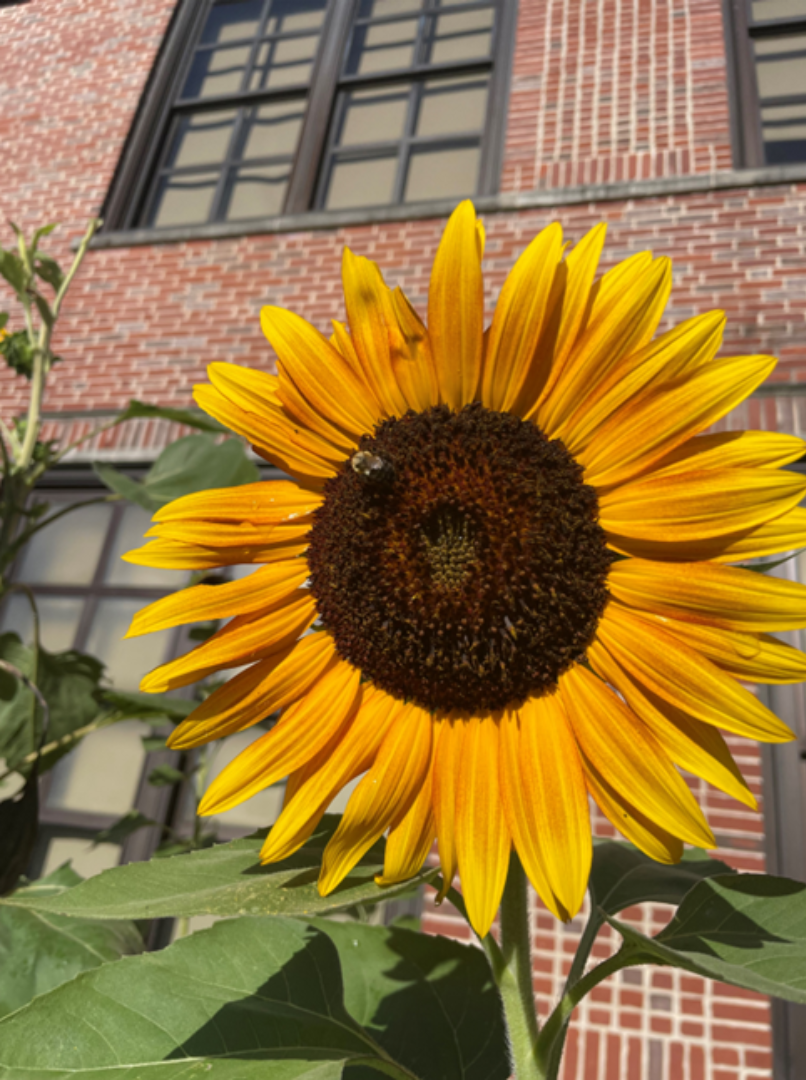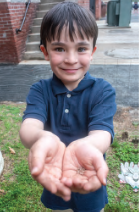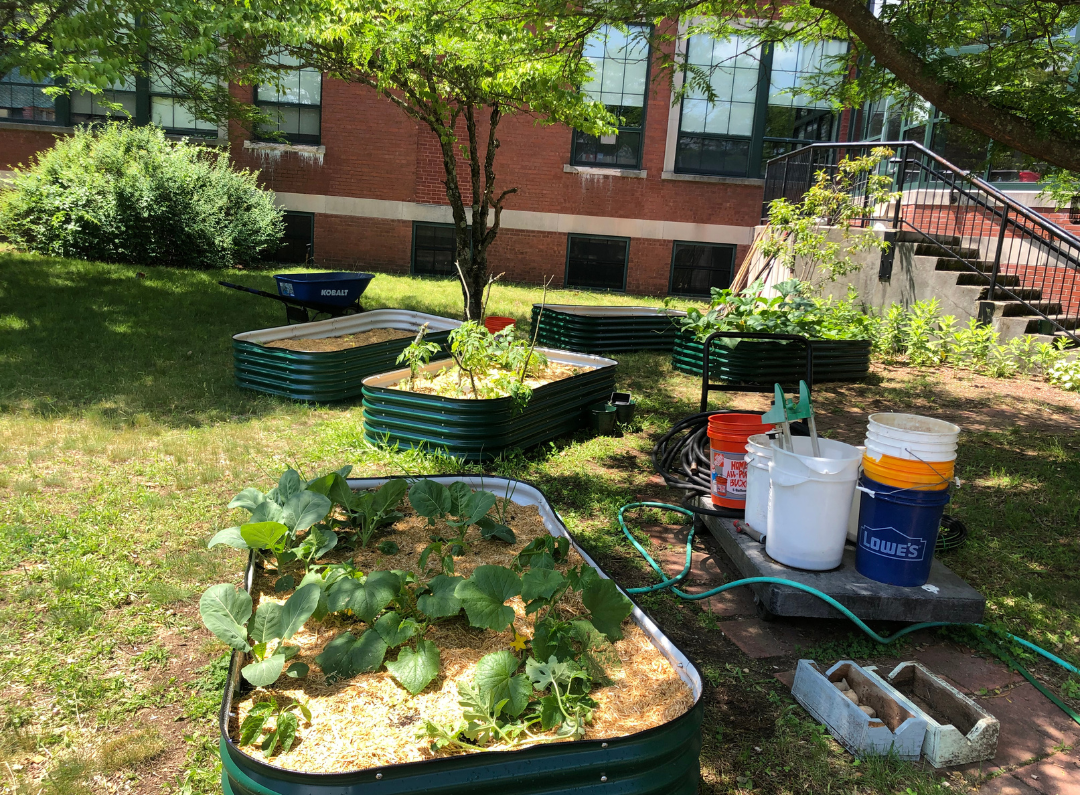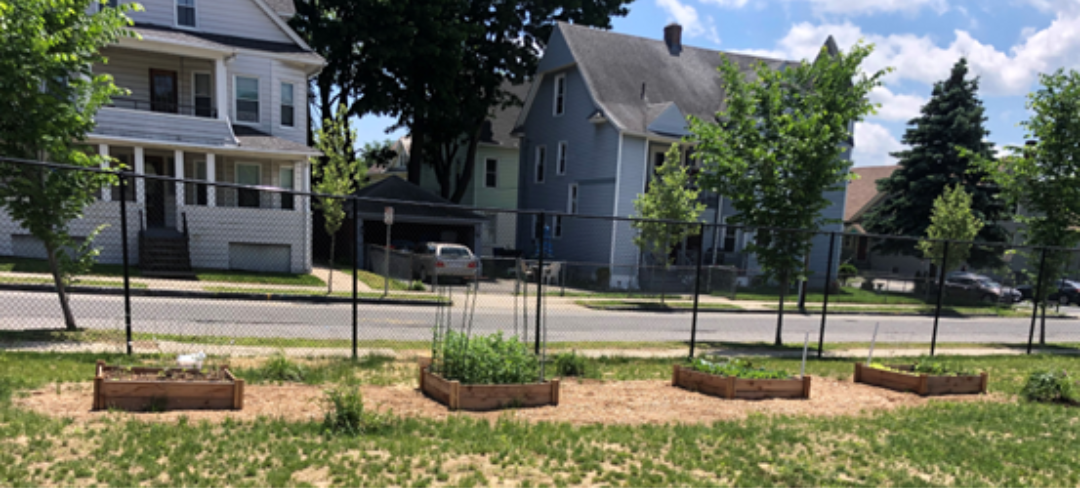School Garden Program
School gardens in Springfield have expanded to over 40 schools with a plan to expand gardens to remaining locations that can host an outdoor growing space. This year it is hoped we will achieve all elementary schools having an outdoor garden. Our gardens grow vegetables, fruit, herbs, and flowers and are used in engaging lessons to support academic curriculum standards.
Springfield School Gardens
- 40 Schools have outdoor Gardens
- 14 indoor gardens under lights
- 5 have Hydroponic Indoor Gardens
- 5 pollinator gardens
- These schools gardens produce food for the students that participate in them

Springfield Public Schools Garden Coordinator:
Kerry Cesan
SPS School Gardens Teacher
Science Dept.
cesank@springfieldpublicschools.com
Gardening is taking root in Springfield Publics Schools. The district is committed to improving its outdoor landscapes for learning by not only increasing the number of school gardens and the number of beds at existing gardens, but also increasing the number of students participating in hands-on, outdoor lessons.
“Gardens are magical living laboratories and places
for learning, empowerment and joy,” said Kerry Cesan,
the district’s director of gardens. “They support academic achievement, increase health, foster community, require collaboration, and provide habitat for other species.”
There are at least 45 sites with outdoor growing space in the district. Within those sites, there are more than 240 raised garden beds, four in-ground gardens and one community garden. By the end of the year, the district will have added 27 blueberry bushes and 21 fruit trees to its school campuses.
Across the state, there has been a push for schools to consistently teach about and serve local foods, supporting vibrant local farming and fishing communities and healthy schools, students and families. Massachusetts Farm to School is one organization dedicated to increasing local food purchasing and education at schools, and the district has been able to access free training and technical assistance. In 2023, the district received funding through the Massachusetts Farming Reinforces Education and Student Health (FRESH) grant, administered by the state’s Department of Elementary and Secondary Education (DESE). The program is designed to support K-12 and early education centers start up or expand school gardens, purchase locally grown ingredients, and educate students about the food system.
This year, the district was able to send seeds to 30 schools and supply 28 schools with vegetable, flower and herb starts/plants.
At Glenwood Elementary School, second-grade teacher and garden champion Rhonda Robinson says her students were inspired to create a school garden after reading the story of pro basketball player Will Allen, who built a community garden in Milwaukee.
“I’ve learned that we must continue to foster real-life connections with what our children are learning in school and their community,” said Robinson. “We have to give them the tools, figuratively and literally, to foster learning beyond the classroom. When I saw how hard the children were working to build the planters, sow the seeds and reap the benefits of their hard work, I made it clear to them that we were learning this process together.”
Robinson says there are many fine motor, gross motor and social skills that students can develop through gardening. They also gain more self-confidence, as well as environmental and nutritional literacy.
“Watering, raking and scooping dirt helps children develop balance and hand-eye coordination,” she said. “They’re using almost every muscle in the body. As far as nutrition, children are willing to try to eat more fruits and vegetables when they have a literal hand in it.”
“There’s definitely some social/emotional learning,” said Cesan. “When you bring a crop to harvest, it feels good.”
“We’re getting kids thinking about where their food comes from, and layering in the science content,” said Ron St. Amand, the district’s director of science. “It’s something they can share, and bring lessons home to their families.”
Alfred G. Zanetti Montessori Magnet School teachers and garden champions Bryce Fifield and Anna Meyerhoff say students look forward to their time in the garden, and enjoy sharing their garden experiences with others. The after-school gardening and cooking club is the primary avenue for students to interact with the garden.
“It’s a place to interact socially with teachers and other students, often from different grades, in a setting dedicated to learning that is outside of the classroom,” said Fifield. “We hope that the students in our program will develop a sense of where their food comes from, an appreciation for nature, an interest in seeds, plants and agriculture, a love of cooking, and open-mindedness toward various cuisines.”
The district is working with 38 garden champions to spearhead gardening efforts. In March, Springfield Central High School hosted a district-wide School Gardens Summit, which featured 11 workshops on topics such as planting for pollinators, outdoor learning, hydroponics, seed libraries, growing microgreens and more. The event was attended by 27 garden champions and 32 other educators.










